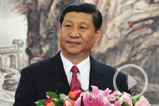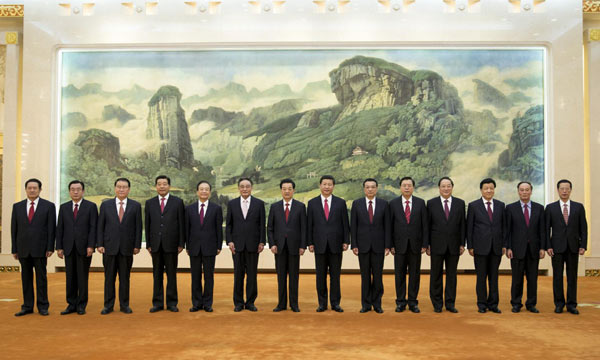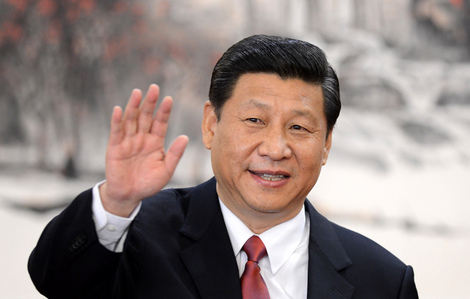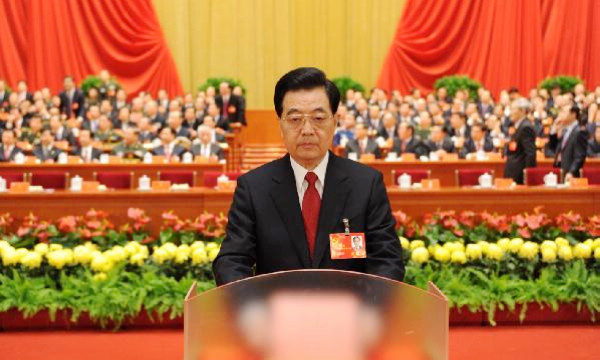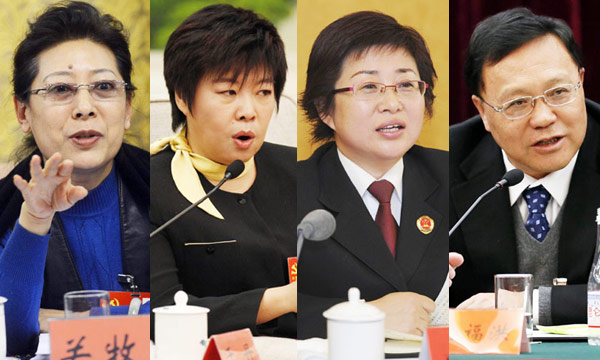CPC sees strength in a smarter China
(Xinhua)
Updated: 2012-11-05 18:31
BEIJING - At a workshop in Optical Valley, China's biggest photoelectron information industry base, located in the city of Wuhan, Zhao Bin, 24, tests a laser cutter by etching the Chinese character "fu", or good fortune, into a piece of metal.
With his degree in laser materials processing, Zhao said he was lucky to land his current job, which offers "very sound pay". There were few openings for students in his major just a few years ago.
Zhao owes his "fu" to his boss, Yan Dapeng, a laser scientist who worked at Nufern, a leading US company in the fiber laser machinery business, for many years before returning to China to co-found Raycus, a company that produces fiber laser products currently sold both at home and abroad.
In 2006, Yan visited Wuhan and was shocked to find that the products he had helped develop in the United States were sold to China at high, non-negotiable prices and with poor after-sales service. In 2007, he decided to move back to China and co-founded Raycus with a local company with which he had had great cooperation in a program the year before.
Raycus has grown to be a leading developer and manufacturer of high-powered fiber laser and core components in China. Its products are sold in developed countries such as Japan, the Republic of Korea, Canada and Italy. Its sales volume in 2011 reached 50 million yuan (7.93 million US dollars), quite an achievement for a company with only about 200 employees.
In 2009, Yan's expertise and his contributions to fiber laser development in China were recognized by the state. He won a fiercely sought after slot in the Recruitment Program of Global Experts. The program, dubbed the "1,000-person plan," was directly launched and is managed by the Organization Department of the Central Committee of the Communist Party of China (CPC).
The program is China's most ambitious specialist recruitment program in recent years. It aims to attract top international specialists in fields such as science and technology, finance and corporate management to start companies in China. The CPC has great hopes that the program can enhance China's overall competitiveness and innovative ability, particularly in the country's weak areas.
By July this year, the program had attracted over 2,800 top-notch, overseas experts in bio-technology, material engineering, IT, finance and other fields in which China is anxious to become a competitive global player.
Wang Huiyao, an expert on the national strategy for human resources with the organization department of the CPC Central Committee, said, "Participants in the '1,000-person Plan' have brought us new ideas, management methods, culture and advanced technologies. China still lags behind the developed world and they can help us catch up."
After joining the "1,000-person Plan", Yan himself became a talent scout. He introduced three other laser scientists from Britain and the US to work with him in Optical Valley, which is situated around the serene Donghu Lake, China's largest urban lake. In their tree-lined lakefront offices and workshops, Yan and his peers in other start-ups have developed high-powered fiber laser machines and core components Chinese companies were unable to produce before.
In Optical Valley, Yan is not alone in starting a whole new high-tech industry in China from scratch with key technologies learned abroad, but an educated workforce is indispensable for any emerging industry to keep the ball rolling.
"These young people are all college graduates from recent years. Most of them majored in laser science. They are the largest asset of my company," Yan said from outside a dust-cleaning lab where dozens of workers in blue uniforms were operating equipment.
In 2012, a record 6.8 million people graduated from universities in China. Over the past decade, millions of college graduates have enriched China's workforce and raised its overall knowledge and skill level, pushing China closer toward being a nation of innovation.
To the CPC leadership, human resources development has always been a top priority. Since the Party's 16th national congress in 2002, the CPC has stepped up development in this area.
That year, the CPC, for the first time, put forward the strategy of building up national strength with talented people. In 2005, the CPC Central Committee and the State Council, China's Cabinet, held the first-ever conference on human resources, issuing detailed roadmaps on how to carry out the strategy. In 2006, the strategy was incorporated into the 11th five-year plan for national development. At the 17th national congress in 2007, the strategy was enshrined in the CPC's constitution.
In 2010, China unveiled the National Medium and Long-term Talent Development Plan (2010-2020), establishing the goal of transforming the country from being "labor-rich to talent-intensive."
Under the plan, the government will work out favorable policies in terms of taxation, insurance, housing, children and spouse settlement, as well as offer government awards for high-caliber overseas talents who are willing to work in China.
Wang Huiyao, the human resources expert, said the strategy was a timely measure for the country. "After 30 years of rapid growth, China's hardware facilities like infrastructure are great, even by international standards, but it falls short in software development like managerial and scientific expertise. One major reason for the weakness is a lack of people with such knowhow," he said.
According to him, in executing the strategy China still needs to remove several barriers in its education system and support system for overseas-educated people. For instance, favorable policies are in short supply for overseas Chinese hoping to set up businesses in China, which means there's little incentive for them to do so.
Meanwhile, the college graduate glut has exposed a discrepancy between the workforce and the actual needs of the economy, as a large number of graduates are unable to land a job, while labor shortages have plagued coastal areas a couple of times over the past few years.
He Yupeng, a research fellow with the Development Research Center of the State Council, said the repeated labor shortages were a result of industrial upgrading and restructuring, and China is expected to adjust its human resources policies accordingly in order to meet the demands of a changing economy.
Related Stories
CPC develops democracy over last decade 2012-11-05 10:53
CPC delegates arrive in Beijing 2012-11-05 13:42
CPC elects younger,grassroot delegates to congress 2012-11-05 09:40
17th CPC Central Committee issues communique 2012-11-04 18:02
CPC discipline watchdog concludes key plenum 2012-11-04 17:47
CPC invites feedback on officials database 2012-11-04 16:18
CPC congress matters to China, the world as well 2012-11-03 15:27
'Self development' sustains CPC's rule 2012-11-01 20:02
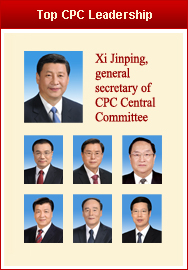
Top News
Xi emphasizes adherence to CPC Congress spirit
Top legislator urges implementation of congress spirit
Moderately prosperous China brings chances to world
Video
